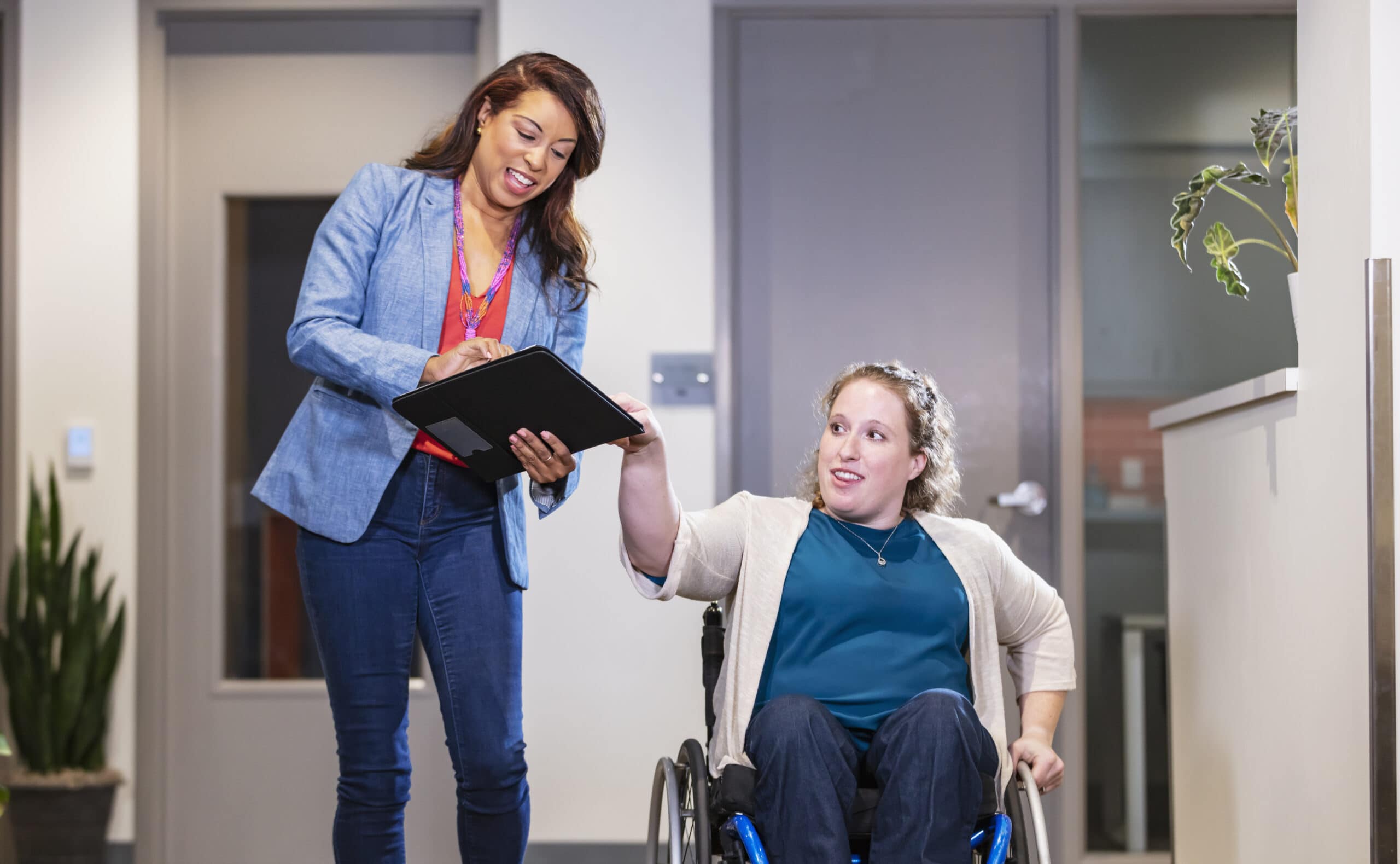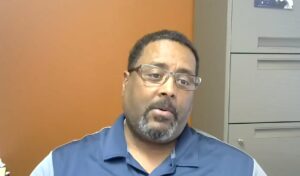View Larger Image

The Americans with Disabilities Act, signed into law on July 26, 1990, prohibits discrimination in employment, transportation and many other areas of public life.
Image by Getty Images
UAMS Commemorates Anniversary of Americans with Disabilities Act
| The University of Arkansas for Medical Sciences (UAMS) held a week of events to commemorate the 33rd anniversary of the Americans with Disabilities Act, the law that prohibits discrimination in employment, transportation and many other areas of public life.
The week culminated in a virtual seminar in which UAMS employees shared their experiences of living and working with disabilities. Andrew Aston said he came to UAMS as a participant in Project SEARCH, an internship program for young adults with developmental disabilities. His performance in patient transport made such an impression that it led to a full-time job.

Andrew Aston talks about his work in patient transport and how the Americans with Disabilities Act has affected his life.
“If you’d asked 18-year-old me if I’d ever get a job here, I would’ve said, ‘No way,’ Aston said. “But UAMS does a tremendous job of helping and accepting people with disabilities.”
Aston said his co-workers have been very accommodating, particularly in the way they take into account that he’s a visual learner. He credited the Americans with Disabilities Act for fostering workplace environments where he and many others can feel comfortable.
“The ADA has affected not only me, but also lots of other people,” he said. “It’s been a big blanket for those of us with disabilities, and it’s good to know we have that protection if we need it.”
David Williams, assistant university registrar for veterans services, spoke about how he lives with hearing loss linked to his time in the U.S. Marine Corps. Williams suffered hearing loss during the first Gulf War, but he didn’t know it until he failed a reenlistment physical while stationed in Hawaii as a recruiter.

David Williams, assistant university registrar for veterans services, describes UAMS’ efforts to provide accommodations for his hearing loss.
“Most of us military guys, we see disability as a weakness,” he said. “It took years for me to realize I had a hearing problem.”
Williams said that when he arrived at UAMS, the phone system posed a problem because of the feedback it caused when it interacted with his hearing aids. He said the university worked with him to find a solution, eventually enabling him to take work calls from his cellphone.
“Of the places where I’ve worked, UAMS seems to be the one that was most dedicated to accommodating my disability,” he said.
Lynne Bowen, lead employee relations consultant in the UAMS Division of People and Culture, serves as coordinator of the university’s efforts to assist employees under the Americans with Disabilities Act. She also personally benefits from the protections provided by the law.
Bowen, who has muscular dystrophy and uses a wheelchair, spoke about the law’s role in increasing the accessibility of public transportation. She said she spent years living and working in Philadelphia, a city that would be difficult to navigate if it weren’t for accommodations that eased her commute.

Lynne Bowen, lead employee relations consultant in the UAMS Division of People and Culture, coordinates employee accommodations under the Americans with Disabilities Act. She also personally benefits from the protections provided by the law.
“Because of the ADA, I’ve never had to worry about going to school or working,” she said. “Sometimes it might be a little more challenging for me, but there are protections that give me the same opportunities as everyone else.”
Bowen also talked about the importance of parking spaces that provide extra room to deploy the ramp that allows her to enter and exit her minivan. While praising businesses for increasingly incorporating those spaces, she noted the lingering challenge of making people aware of their purpose, as they often become spots where shoppers leave their carts.
The Disability Subcommittee of the UAMS Division for Diversity, Equity and Inclusion (DDEI) organized the anniversary commemorations, which also examined the history of disability rights in America and the help available to UAMS employees who need accommodations under the law.
The Americans with Disabilities Act was signed into law by then-President George H.W. Bush on July 26, 1990, but the movement to protect the rights of those living with disabilities began decades earlier. The return of injured World War II veterans in the 1940s fostered a new perspective, casting light on groups of people who were once neglected and denied equal treatment.
About 12.7% of Americans reported living with a disability as of 2019, according to the U.S. Census Bureau. In an effort to create a more inclusive environment for this population, UAMS has created processes to assist students and employees who request accommodations.
DDEI also provides an Accessibility Resource Toolkit for those who would like to learn more about improving accessibility in the workplace.
“We want to make sure UAMS is a community that’s open and accessible to everyone,” Bowen said.